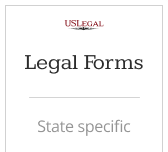Full question:
i suffer with mental illness and also learning disabilty but I've returned back to scool to pursue education and Im having a issue with a concern that was taken to the dean at university. The problem wasn't resolved. I need help? I submitted medical documentations to Disability Services at University. This is the requirement that the universtiy ask students for when applying for services through disabilty. Disability then, provided me with forms to give each professor regarding accommodations. Each professor signed off on these accommodations. I took ill while taken a new medication that was given to me by psychiatrist. I was ordered to report to ER for evaluation. During this period, I missed a major exam and some assignments due to time off. When I returned, I provided all medical documentations to all professors. One major test along with missed assigmnents can hurt you average. This particaular class is a subject in which I have always struggled with. I asked professor to take a make -up test . She told me I could but refused to give me accommodations she signed of on. Also, she wanted me to miss other classes to take test. I believe this is against school policy. I made very effort to take test before other classes. However, she never responded. I contacted disability coordinator in a effort to try and mediate situation. She got no response from the professor. Refusal to respond. I thought the next step would be to speak with the Dean of the college. I gave her all the facts regarding this matter. I got the impression that she was siding with the professor. This is the only professor that has been given me grief. I asked the Dean to just allow me just take this class during the summer. I wasn't given that option nor was the matter resolved. I feel my rights as a student with disabilty has been infringed. I don't know that I need legal representation, perhaps a advocate that handle these issues. But, I would want some suggestions.
- Category: Education
- Subcategory: Student Rights
- Date:
- State: Texas
Answer:
In the school setting, it is generally a matter of internal administrative decision-making. While the school may have applicable guidelines to follow, it often is a matter of subjective determination. It is more of an administrative than a legal matter. Typically, the courts will review such cases only insofar as ensuring that due process rights were afforded to the student in the procedures. This will involve such considerations as whether the student was served with a written notice of requirements; was made aware of grounds which would justify her expulsion or suspension by way of the student handbook; the hearing tribunal afforded an opportunity to hear and confront the evidence presented against the student and an opportunity to be heard and to offer other evidence if the student chose; the student was accorded the right to have someone from the college community to assist her in the proceedings; was informed of the tribunal's finding; was given access to its decision for personal review; and, was advised in writing of the consequence imposed.
Schools receiving federal funds at the postsecondary level are required to provide students with appropriate academic adjustments and auxiliary aids and services that are necessary to afford an individual with a disability an equal opportunity to participate in a school's program. Recipients are not required to make adjustments or provide aids or services that would result in a fundamental alteration of the school's program or impose an undue burden.
However, students attending private universities do not possess the same due process rights under the U.S. Constitution that are guaranteed to students attending public schools. Therefore, courts are reluctant to review the administrative decisions of private schools and tend to defer to private school decision making, especially in internal affairs. Courts generally have applied a very lenient standard of review and required that private school procedures conform to a basic fairness standard. The procedures must have a rational basis, so as not to be arbitrary or capricious. Courts typically rule that a private school’s decisions are fundamentally fair if they are aligned with the school's rules and procedures.
When a school policy for promoting students is stated in non-mandatory language, it is a discretionary matter, and will be subject to the subjective determinations of the decision-makers involved. These decisions are typically upheld as long as a rational reason can be offered to support it. I suggest exploring whether there is an appeals or review procedure available.
For further discussion, please see:
http://www2.ed.gov/about/offices/list/ocr/504faq.html
http://biotech.law.lsu.edu/cases/schools/UMMC_v_Hughes.htm
This content is for informational purposes only and is not legal advice. Legal statutes mentioned reflect the law at the time the content was written and may no longer be current. Always verify the latest version of the law before relying on it.




